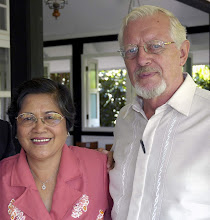Monday, February 13, 2017
DO I SUPPORT ILLEGAL IMMIGRATION?
Over the weekend a friend on Facebook questioned me about this issue of illegal immigration and the refugee crisis.
My original post was a link to an article that highlighted the inevitable clash between churches that offer amnesty or sanctuary to those fearing deportation, and the Immigration Enforcement Agencies that are tasked with finding, arresting and deporting these people.
His question was this:
"I am curious to hear your defense of someone illegally entering a foreign nation, and following that up with repeatedly violating multiple other laws of that nation while simultaneously illegally receiving a variety of monetary benefits...Surely you aren't going to argue that the mere "existence" of immigration laws represents an "unjust law" that - as a believer - can be morally ignored? I'm just trying to establish a 'baseline' for your argument, here. Where does 'just enforcement' begin, in your view? Or is there no such thing?"
It's a fair question and one that that I myself have wrestled with over the years as someone who has tried to reconcile my faith with everything else in my life.
In the past, I might have tried to do exactly what he asked me to do: Justify the legality of immigration laws in our country, or seek to directly balance the words of Jesus with American immigration policy.
But that's not what I do anymore. I have a different perspective now.
Here's how I answered my friend:
"Do I need to justify prostitution to care for a prostitute? Is it 'anti-criminal justice' to serve in prison ministry? Am I pro-drug use if I serve someone who is addicted to drugs?
"No. We show mercy and grace and the love of Jesus to everyone."
See, we don't need to limit our ministry to those who are "righteous" and "law-abiding". In fact, to do so would be completely pointless.
If someone is already "good" then who needs Jesus?
And Jesus was quick to point out that it was only those who were sick who need a physician, and it's only those who admit they are blind that receive healing for their blindness.
The greatest blindness, of course, is not recognizing our own blind spots. If we fail to see ourselves in the outcast, and the poor, and the broken, then we also fail to see Jesus in them as well.
"Whatever you have done for the least of these, you have done it unto me," Jesus reminds us.
So, we really only love Jesus as much as we love the people around us who are poor, and weak, and hungry, and thirsty, and naked and in prison.
What's more, we are reminded in the New Testament that we ourselves are equally in need of Jesus and His mercy and grace and healing as anyone - and everyone - else we see:
"Or do you not know that wrongdoers will not inherit the kingdom of God?....And that is what some of you were." [1 Cor. 6:9-11]
We forget that we are no better than anyone else. We are all sinners saved by the same grace. We are all people who are dearly loved of God and in need of His endless mercy.
Refugees and illegal immigrants are people, just like you and me. They love their families. They want to live in peace. They are running from war and oppression and poverty and looking to find a new life here - just the way we would if it was our family - our children - who were starving and dying and in need of safety.
Regardless of what the laws might say, we are answerable to a higher authority. Jesus, our glorious eternal King, commands us to treat everyone - especially the weakest among us - as if they were Him.
It's not our job to work out who is most deserving of His mercy. That's way above our pay grade. Our job is to love everyone we see and to recognize that our King commands us to be extravagant with our love.
So, do I support illegal immigration? No, I don't. But I do support loving everyone around me. If those people happen to be illegal immigrants, or refugees, or Muslims, or anything else, my job is to love them as much as I love Jesus.
If you're following Jesus, it's your job too.
Peace,
-kg

